If you're trying contact lenses for the first time, you'll find some helpful videos and instructions here along with some important advice.
How to apply your contact lenses
Application
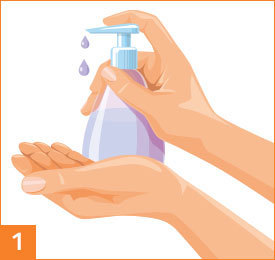
Step 1: Wash and dry your hands.
- Before handling your contact lenses, wash your hands using plain soap and rinse carefully with water
- Dry thoroughly with a non-fluffy towel.
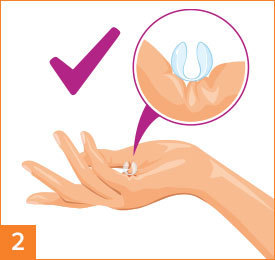
Step 2: Prepare your contact lenses.
- Take a lens out of the blister pack
- Place the lens on the crease of your hand and move your little finger forwards. If it is the right way round, the lens should curl inwards. If it is the wrong way round, the edges may flatten.
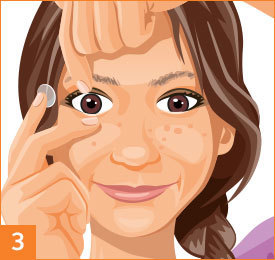
Step 3: Apply your contact lenses.
- Lift your top eyelid holding it close to where your lashes meet your eyelid
- Pull your bottom eyelid down
- Look straight ahead
- In slow-motion, gently apply the lens over the coloured part of your eye
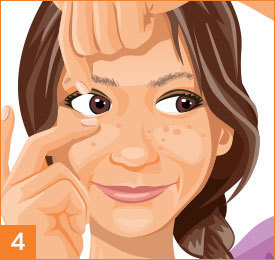
Step 4: Check and confirm
- After your contact lens is in place, slowly move your index finger away from your eye.
- Holding your eyelids open, look around to remove any air bubbles
- Slowly and gently let go of your eyelids
- Blink gently to settle the contact lens in place.
How to remove your contact lenses
Removal
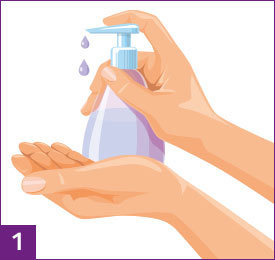
Step 1: Wash and dry your hands.
- Thoroughly wash your hands using plain soap and rinse carefully with water
- Dry thoroughly with a non-fluffy towel.
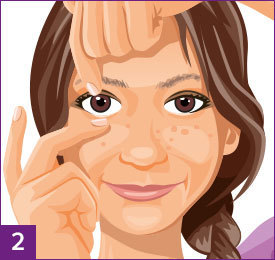
Step 2: Prepare to remove your contact lenses.
- Look straight ahead in the mirror and check that the lens is resting on the coloured part of your eye
- Lift your top eyelid holding it close to where your lashes meet your eyelid. Pull your bottom eyelid down, keeping a firm hold and concentrating on keeping both eyes open
- Now lower your chin so that you’re looking up slightly into the mirror.
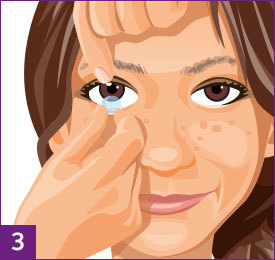
Step 3: Remove your contact lenses.
- Using your thumb and forefinger, gently pinch the lens and remove it from your eye.
- Pull your bottom eyelid down
TOP TIP: It is safer and easier to remove your lens from the white part than the coloured part of your eye.
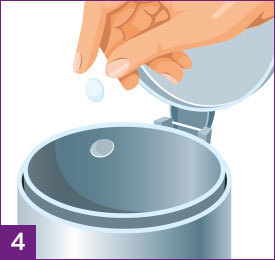
Step 4: Dispose of your lenses.
- Once you’ve removed your contact lens, all you need to do is simply throw it in the bin and repeat these steps for your other eye.
Important Advice
If you're trying contact lenses for the first time you may be wondering what to expect. The following 'always' and 'never' tips will help you to look after your eyes and your MiSight® 1 day lenses.
Always
Always start with the same eye every time.
When applying your lenses, it is a good idea to start with the same eye each time. YOu'll be less likely to switch the lenses by mistake.
Always follow the recommended wearing schedule.
Start with fresh new lenses every day. The recommended wearing schedule for MiSight 1 day is 10 or more hours per day, six or more days per week.*
Always attend regular appointments.
Regular appointments are important to assess progress.
Always give yourself plenty of time.
Take it slowly and follow our guide. It may take a while at first but the more you do it the easier it becomes. Soon you'll be able to apply and remove your lenses with complete confidence.
Always follow the advice of your Eye Care Professional.
There are risks associated with wearing contact lenses and these risks can be minimised by following the advice of Your Care Professional.
Never
Never let your lenses come into contact with water.
Contact with water increases the risk of a serious eye infection and can lead to loss of vision. This includes showering, swimming and other water-based activities. You should wash your hands and DRY them thoroughly before handling your contact lenses.
Never wear a damaged lens.
If you notice any damage, like a tear or split in your contact lens, don't wear it. Open a new blister pack and ask your Eye Care Professional for a replacement.
Never wear lenses if your eyes are sore.
*If you are feeling unwell, or your eyes are red and sore, do not wear your lenses. Wear your glasses instead.
Never wear expired lenses.
You can find the expiry date on the foil of each blister.
If you have any questions, contact your Eye Care Professional - they are the best person to help you with any questions you may have.
Disclaimer: Nothing on this site is to be construed as medical advice, nor is it intended to replace the recommendations of a medical professional. For specific questions, please see your eye care professional.
SA13021






